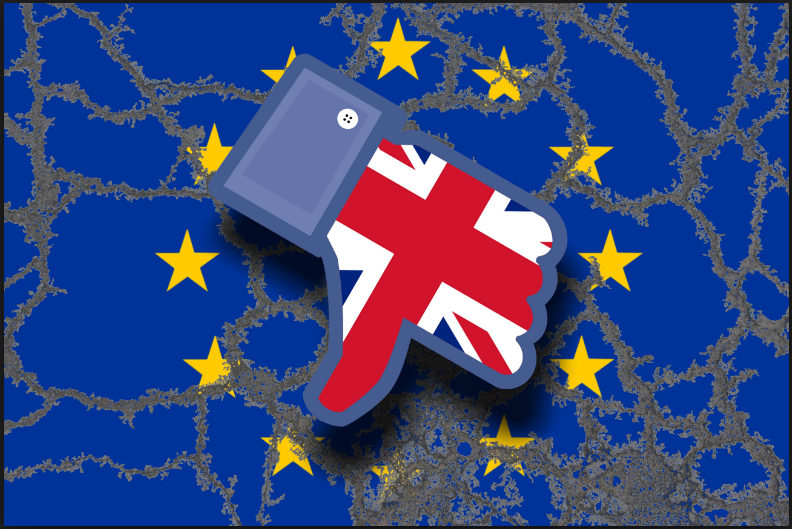BREXIT – The UK is Out
June 24, 2016
Last night the United Kingdom passed a referendum to leave the European Union. Heading into the vote, polls and betting odds suggested the U.K. would stay so the vote is a major surprise, especially to the financial markets.

Source: Renegadetribune.com
At The Joseph Group, our investment team is on the phone with money managers and processing what impact the UK’s decision to leave will have on markets and portfolios. Market volatility is going to be high, but we also expect volatility to create the kind of opportunity which can generate wealth for long-term investors. As markets digest the news, the situation is fluid, but here are some of the facts we are talking about this morning:
- The negative reaction is taking many areas of the financial markets back to where they traded last week. In Friday morning trading, stock indexes in France, Germany, the UK, and Japan are down -6% to -7%. Those are big numbers, but for perspective, the one week return for the MSCI Europe index heading into today was UP +9.75% (source: Morningstar.com). Europe had a big rally last week ahead of the vote and is having a big decline after the vote. We’re seeing the scary words in media headlines just like you are, but when you look at the numbers, European markets have been on a roller coaster the last eight days that has simply returned to where it started.
- Interest rates are unlikely to move higher anytime soon. The last few months have seen a lot of talk about Janet Yellen and when the Federal Reserve might raise interest rates. Many economists expected the Fed to hike rates in July, but Fed Funds futures are now pricing in a slight chance of a RATE CUT in the months ahead. The bottom line is interest rates are likely to stay low for longer.
- The process of the UK actually leaving the European Union will take time. The referendum vote means the British people are telling their Parliament they want to leave the European Union. The vote which took place last night does not have any actual binding impact. The next step is for the British Parliament to vote and this is the vote that actually sets up the legal process for the UK to leave the European Union. It is virtually a given the British Parliament will honor the wishes of their constituents, so the BREXIT will happen. However, once the British Parliament votes, the legal process of leaving takes two years to complete. Article 50 of the Treaty on European Union calls for a two-year period for negotiating a country’s withdrawal from the EU.
- There will be ripple effects in other European countries. The United Kingdom leaving the European Union sets a precedent for other countries who also may consider leaving the EU. The aforementioned Article 50 of the Treaty to Leave the EU has never been invoked so what happens with Britain will set a precedent. Spain has a major election in 2016, while Germany and France both have major elections in 2017. These countries will be watching what happens in the UK closely and the activity could result in more elections for “change” in the future.
- We’re paying particular attention to what happens with currencies. The market impact from BREXIT is clearly happening right now and it is our job to separate the signal from the noise. While we are looking and analyzing all of the market data, we are focusing on the big picture. It’s scary to see the Dow down -400 points in a day, but keep in mind the Dow was up +230 points yesterday. The stock market is simply back to the level it was a few weeks ago and that’s noise. Right now we are focused on what happens with currencies like the Euro, the British Pound, and the U.S. Dollar. We believe the behavior in currencies could lead to real financial impact on market liquidity, and therefore actions from central banks such as the European Central Bank and the U.S. Federal Reserve. Right now, the crisis is more political than financial. Currency, liquidity, and Central Bank actions are the factors that will speak to the financial side and these are the main factors which will drive our longer-term portfolio decisions.
- We are also paying attention to what we are hearing from our Research Partners. As part of our research process, The Joseph Group focuses on institutional research we receive from large firms such as Strategas Research Partners, JP Morgan, and Goldman Sachs. In terms of portfolio positioning, themes we are hearing from these research partners include greater interest in emerging market stocks, and greater interest in investments that return cash – think dividend paying stocks. These are two potential areas for outperformance.
We recognize political events such as BREXIT and its impact on markets produce anxiety. In the short-run, volatility like what the market is seeing today is a reminder of why we diversify and make risk-management an essential component of our objective-based portfolios. We welcome your questions and thoughts as we seek to process what is happening and make intelligent long-term decisions on behalf of our clients.